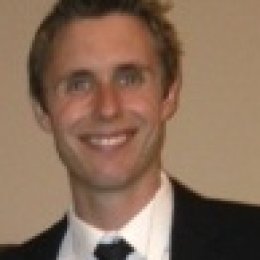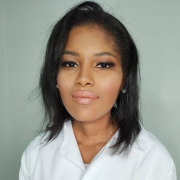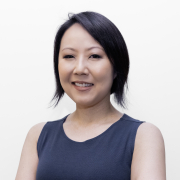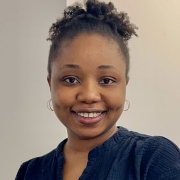2. How did you become interested in research relating to Hypertension and Cardiovascular Disease?
Originally my interest in attenuating CVD prevalence stems from my training in Physical Education (B.S.) and Exercise Science (M.S.). More recently the factor that has really motivated me to study hypertension pathogenesis is the knowledge that hypertension is one of the primary risk factors that precedes the development of other cardiovascular diseases. Therefore, if you prevent, treat, or slow the progression of hypertension you may also alleviate the burden of other cardiovascular diseases.
3. Describe your research & the program/lab (info of your supervisor) that you are in?
My research is focused on vascular function and innate immune system in hypertension. My mentor is vascular physiologist and chairperson of the Department of Physiology, Dr. Clinton Webb. Clinton’s knowledge and experience is vast and his mentoring style always keeps me motivated.
4. What do you consider to be your substantial scientific contribution so far (provide Pubmed PMID if possible)?
I wish I had more original articles in the hypertension field – but I am working on it! My most significant contribution at this stage is the review below:
Toll-like receptors and damage-associated molecular patterns: novel links between inflammation and hypertension.
Am J Physiol Heart Circ Physiol. 2014. PubMed PMID: 24163075
5. What is your favourite manuscript from a lab or mentor other than your own (provide Pubmed PMID if possible)?
Central and peripheral mechanisms of T-lymphocyte activation and vascular inflammation produced by angiotensin II-induced hypertension.
Marvar PJ, Thabet SR, Guzik TJ, Lob HE, McCann LA, Weyand C, Gordon FJ, Harrison DG.
Circ Res. 2010. PubMed PMID: 20558826.
6. What facilities are essential for your research?
I’m flexible. As long as I can keep my ideas novel I can figure out valid and reliable ways to answer my questions.
7. Where do your research strengths lie? Why? What are your research weaknesses? How will you improve?
Strengths:
- Desire to contribute novel and significant science.
- Love of learning and discovery
- Leadership and organizational ability
- Time management
Weaknesses:
- I would like to know more techniques to answer my questions.
- Patience regarding the development of my scientific ideas and the best ways to go about testing them.
I can keep improving as a scientist by continuing to attend conferences, as well as establishing scientific collaborations and friendships. These will help me always be at the forefront of breaking developments in science and the area of hypertension.
8. Describe your unforgettable (proudest) moment in science, and the most challenging situation that you have had to overcome (lessons learnt) so far?
The two proudest moments that I can recall easily are the day I was awarded my AHA pre-doctoral fellowship and the day of ISH New Investigator Symposium in San Francisco, 2014. For the ISH symposium, despite having significant dental surgery the Thursday before (implant) and a flight delay out of Atlanta, I still presented and hopefully everybody understood what I was trying to say!
My most challenging situation would be first year classes of the Georgia Regents University Biomedical Sciences core curriculum. As I had transitioned from more exercise related fields (as opposed to traditional biology, like most of my classmates), I found the molecular biology and biochemistry challenging. Testament to my ability to adapt (and the tutoring of an upperclassman in the program), I survived the first year and once I joined Clinton’s lab I was ready to hit the ground running because I already had experience performing research.
9. At which conference did you first present? How was your experience?
HBPR 2012 in Washington DC. I remember being extremely nervous and I also not knowing what to expect. Nonetheless, the people that stopped by my poster were enthusiastic, knowledgeable, and courteous.
10. What upcoming conferences will you be attending, and what is the furthest distance that you have traveled for a conference?
Clinton always allows our lab the opportunity to attend EB and HBPR (Boston and Washington DC are the 2015 versions, respectively).
The furthest I have traveled for a conference would be San Francisco. Being that San Francisco is on the West Coast, I was already half way home (to New Zealand!)
11. How did you learn about ISH/NIN and its activities?
I had heard of ISH before but it was actually a Department seminar speaker, Dr. Richard Wainford, who really promoted ISH to my fellow grad students and I. This interaction inspired me to attend this year’s symposium and subsequently I am excited about promoting ISH myself in the future.
12. What area(s) do you wish to specialize in the future?
I would like to keep studying pathogenic mechanisms and preventive strategies of hypertension and cardiovascular disease. Nonetheless, I am open to letting my data lead me.
13. Who is your role model in Science? Why?
Clinton and my M.S. mentor Rick Bloomer (University of Memphis). Not only is their scientific knowledge immense, but they have exemplified to me how to have a work-life-balance. If I can achieve half as much as they have in their respective careers and life, I know I’ll be doing well!
14. Are you involved in other scientific or career associations? If yes, how is it helping in your career advancements?
I was recently given the opportunity to serve on the APS Trainee Advocacy committee. Although I haven’t assumed any responsibilities yet, I am excited to be involved.
15. What are your scientific goals? Advise for talented emerging scientists?
Like I mentioned above, I desire to disseminate novel science that hopefully contributes significantly to my field and also benefits the health and wellbeing of our society.
As for advice…keep your eyes pealed for the implicit lessons in science and life; sometimes they’re just as valuable as the explicit ones.





















